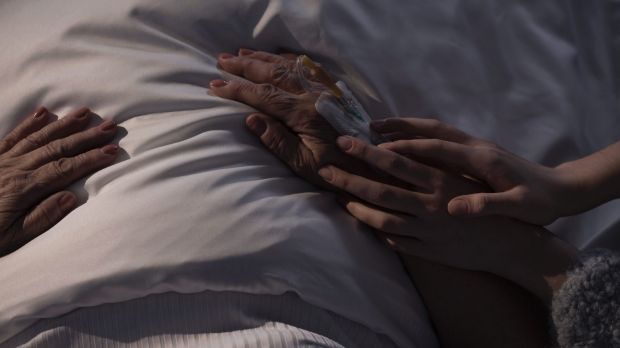Originally published in The Age, 9 October 2017
by Marion Harris
Most patients with incurable cancer battle to the end. They exhaust all evidence-based active treatment options and clinical trials before being told that supportive care measures are now best.
A request to die is uncommon, and is often driven by poorly controlled pain or nausea, as well as fear, loss of function and hopelessness. Usually when pain and other symptoms are under control, good nursing care is on hand, and psychological support has been provided, patients no longer want their death to be hastened.
For family members watching a loved one die, the experience can be agonising. However, with appropriate involvement of palliative care, the preparation and education of family members about the normal processes of dying (such as irregular breathing and fluctuating consciousness), and with the administration of pain relief, there is minimal physical suffering.
When a patient seeks assisted dying, it is often when they are first told they have a limited life expectancy and before they are truly unwell. They are so distressed by such difficult news that they anticipate what is to come and can be consumed with fear and an urge to regain control. They may respond by seeking assisted dying at a time of their choosing. In overseas jurisdictions where this is legal around 80 per cent of those who access it have cancer.
Under the assisted suicide model proposed for Victoria, no psychiatric assessment or specialist palliative care assessment of intending patients are required. There is no need to involve the patient’s treating doctors as two new doctors with no mandated end-of-life expertise assess and authorise lethal medicine without any follow-up care.
Informing family members is optional. The entire process can be completed and drugs taken within 10 days – little time for change of mind about an irreversible act. Everyone is presumed to have decision-making capacity unless they obviously don’t. Determination of a patient’s life expectancy involves an educated guess by doctors and the confidence intervals can be wide.
The critical issue is that assisted dying has implications that extend far beyond any one individual and his or her right or choice. These extend to that person’s family, community and to society as a whole. To grant a few the right to euthanasia means that the rights of many vulnerable others are compromised.
If assisted dying is legalised and becomes normalised in our society, over time people with incurable cancer and other terminal illnesses will be conditioned and pushed towards it.
Faced with another option, they now have to choose to burden their family with their care. Stories of bad deaths, hopelessness, of being a cost to society, and of having a completed life will combine to suggest that they should choose an assisted death.
Elder abuse for financial gain is already well documented as a growing problem in Australia. Expansion of indications for assisted dying with time is inevitable – just ask Alzheimers Australia. In addition, doctors are complicit in this act as they intentionally provide the ill with the means to end their lives – a new and not so welcome addition to their job description.
Two people on average each day in Victoria tragically take their own lives, and almost all of these do not have terminal illnesses. It is a mixed message to campaign to prevent suicide in some, while providing the means to others.
Thousands of Victorians die each year without access to adequate palliative care services. Provision of well-resourced palliative care services statewide is the best way to reduce suffering at the end of life – not a lethal substance.
The Australian Medical Association as well as most other international medical bodies do not support assisted dying laws. The American College of Physicians has this month published its position statement reaffirming its strong opposition to this practice on many levels. Even doctors who do support this are reluctant to provide scripts or perform euthanasia themselves.
These are the reasons why I – along with 100 other Victorian cancer specialists – have put my name to an appeal to Victorian MPs not to pass the legislation.
Regardless of any change in the law, I won’t intentionally help my patients to end their lives, nor do I personally know of any doctor who will. It is not the solution to the complex problems people face at the end of life, and it creates more problems and injustices than it solves.
Marion Harris is a consultant medical oncologist at a major public hospital in Melbourne.

